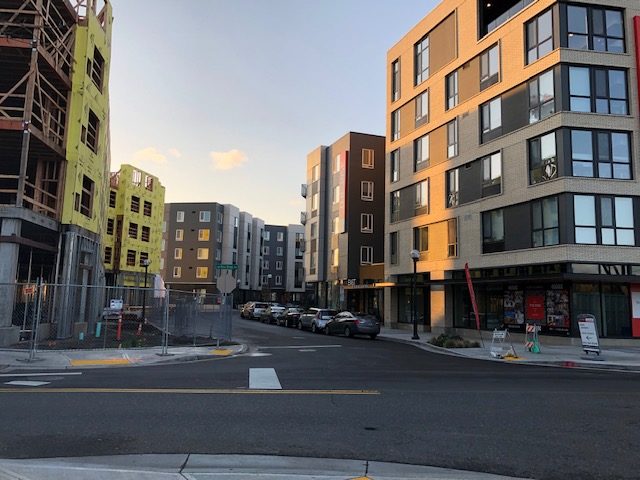House Committee Approves ‘Compromise’ Opportunity Zones Bill
The House Revenue Committee has approved a bill that would reduce by half the capital gains tax benefit for Opportunity Zone investments available for profits on sales of assets after ten years.
Committee Chair Nancy Nathanson, a strong supporter of disconnecting the State from federal tax benefits, found a compromise that Democratic leaders hope will win a floor vote and pass the Senate. The amended HB 4010 passed out of the House Revenue Committee on party lines: 4-3. Committee Democrats David Hernandez and Alissa Keny-Guyer said they preferred the original bill which would have denied Oregonians the capital gains tax breaks created by the 2017 federal tax law.
“There are many of us who want to just disconnect,” said Hernandez, a Tax Fairness Oregon ally on the bill. “It’s already disgusting how much wealth inequality there is in this country and this state.”
Pam Marsh supported the compromise which will require the state to collect information on investments, allowing it to study “what we are getting or paying for,” she said. And the reduced state tax benefit says to investors, “We also want you to give back a little bit to local communities . . . when you do make money.”
The bill now moves to the House floor for a vote. Please urge your legislators to vote for it!
On February 20th, the Oregonian reported on the bill as the committee was preparing to pass it.
The original bill would have denied state tax breaks that are effectively connected to the federal provision. In TFO’s conversations with legislators, it appeared that Beaverton city officials had convinced enough Democrats that the tax breaks for investors were a critical tool for development in their Opportunity Zones where a number of hotels, a class A office building and a performing arts center (with $1.5 million of state funding) are under construction. While Beaverton was the leader, cities and economic development officers from around the state pushed hard against the original bill.
House Republicans helped organize opposition to TFO’s advocacy according to testimony submitted to the committee by an Oregon law firm, Dunn Carney.
TFO shared with legislators evidence that several high-profile projects in Portland—including the Ritz-Carlton and Eleven West—were planned before the 2017 provision was enacted, and that their owners folded them into new entities to exploit the tax savings. Those points—among others to which our coalition of 18 labor, civic and policy organizations lobbied and testified—were not enough to sustain support for the original bill.
The amended bill would require the State Department of Consumer and Business Affairs to collect information on projects drawing Opportunity Funds, the federally sanctioned vehicle through which the tax benefits are available to investors. That would allow the Legislative Revenue Office to weigh alleged benefits and the cost to the General Fund.
Help us get the amended HB 4010 across the finish line.
O Zone tax benefits include deferred capital gains tax on proceeds from assets sold and then invested in Opportunity Funds. Under federal law, the tax owed is reduced by up to 15% when paid no later than 2026, and the capital gain on the sale of invested O Funds is tax-free after 10 years. Under the amended bill, the State tax on O Fund gains would be half the regular rate—4.95% rather than 9.9%, the top income tax rate. The reduced rate would apply to Oregonians’ capital gains in O Zones throughout the country.
The Oregon Center for Public Policy produced a four-minute video on Opportunity Zones.
LRO estimated the cost in this biennium would be about $16 million. The congressional estimate upon which that number was based has since doubled. No economist has guessed the cost of the tax exclusion for investments held 10 years.
Some legislators contend that Oregon should study the effects of O Zones before disconnecting. But the benefits and ostensible purpose of the zones have been in various federal incentives since the 1990s such as giving investors tax breaks for investment in geographic areas meeting poverty criteria. Economists on the left and right have long criticized the provisions as ineffective: They don’t alleviate poverty or create employment, but they do increase housing costs.
Analyzing O Zones, the libertarian Cato Institute concluded: “They actively divide the nation between winner and loser communities. They replace equal justice under law with differential treatment based on political pull. The main winners likely are landowners within the zones, not poor households.”
Opportunity Zones were the brainchild of Sean Parker, the first president of Facebook. Parker funded a think tank in Washington to shop the idea on Capitol Hill and spent $2.88 million on lobbyists over three years finding a home for the provision in the Trump tax bill. The New York Times reported in August that Parker had told an investor conference, “When you are a founder of Facebook, and you own a lot of stock, you spend a lot of time thinking about capital gains.”
The House will vote on the bill within days. An email to your legislators asking them to support HB4010 will help it get across the finish line. With studies supported by data, we can come back for full disconnection in 2021.


